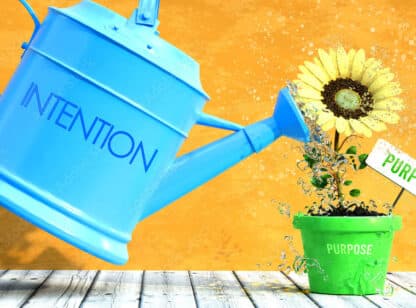
Self-compassion can help calm that reactionary inner child.
Are you one of those who sometimes wishes you could curb hurtful and reactive responses and behaviors in the heat of the moment? Well, the fall season is upon us and cooler temperatures present an ideal opportunity for those with hot temperaments to consider a personal “cooling.”
The good news is we can conquer this seemingly impossible feat, experiencing a much more thoughtful and empowered mindset that is our “adult self.” It’s never too late to step into your grown self who can be authentic, genuine and motivated in seeking more workable and satisfying relationships.
You can see that I am separating your adult self from that reactive and impulsive “child self” who much too often likes to rule the roost and run the emotional show.
The first step is to understand that each one of us has an inner child who often feels hurt, shamed, wounded, and unsafe. Your job is to re-parent that inner child with more compassion and sensitivity than he or she has ever had, and to let that inner child know that you, the adult self, is gently taking over; communication is now an adult job and not one of that reactive, impulsive, angry kid.
Think I’m overreaching? This concept of non-attachment in childhood due to early childhood trauma or abuse (emotional, physical, and sexual) is data-based and many therapists often visit a person’s childhood relationships in supporting someone to cope with their world views and behaviors today.
For example, when a couple comes to see me, many times it’s their inner children who are present and fighting with no healthy or satisfying road toward resolution. The relationship is a hamster wheel of resentments, feeling unheard, dismissed, unimportant, invalidated, and most definitely unloved. One of the goals of therapy is to help the couple see who is in charge when they are hurt, and to empower the adult self to solve the issues the inner children can’t possibly comprehend and master.
When relationships are left emotionally exhausted from inner child attacks, individuals often carry their wounded histories into the next relationship seeking someone who will fill their empty emotional selves. Thus, the cycle continues because we human beings do what’s familiar. Living life unconsciously is not living life; it’s merely existing or surviving.
With the application of a very conscious awareness and some valuable work, we all can live fulfilling lives that are no longer held hostage from our unsafe and wounded pasts. Everyone has a chance to improve relationships through consistent, healthier and more adaptive behaviors. We all can live life without our reactive and impulsive selves taking over.
So, each time you feel the cool breeze brush across your face, know you have an opportunity to keep your cool and experience life as never before.
Here’s to living a cool life, inside and out.
Dr. Amy Austin is a Licensed Marriage and Family Therapist (MFC # 41252) and Doctor of Clinical Psychology in Rancho Mirage. Dr. Amy can be reached at (760) 774.0047.















































Comments (8)
Amy, you have a gift for communicating complicated processes and making them easy to grasp. Thank you!
Thanks so much Tami. Glad it was an easy, yet meaningful read. Much appreciated!
I just wanted to say how educational, and poignant I found this article. As an advocate of psychotherapy and mental-health, I recognize the importance of working through emotional trauma stemming from old childhood wounds. Learning to re-parent these feelings, with a warm, engaging therapist can make all the difference. Thank you Dr. Austin for looking in and going beyond.
Thanks Michael for your succinct recap of the article and stressing the importance of the concept of re-parenting through the application of new and more adaptive ways of thinking and behaving.
Thank you for the very informative article- reading this creates some awareness of the challenges of the ” inner child” many of us experience is the first step on the road to healthier and happier behaviors ! I
Thanks Sheryl for commenting. Yes, it’s imperative that an individual needs a baseline or foundation to move out of dysfunctional patterns and into the land of living!
Excellent article describing the default behavior of the ‘inner child’ and giving practical tools to deal with it and grow in the process!
Thanks Chaya for your comment. I like your term “default behavior” in tandem with “inner child.” It aptly describes how the child self can take over and cause emotional chaos in relationships and life.